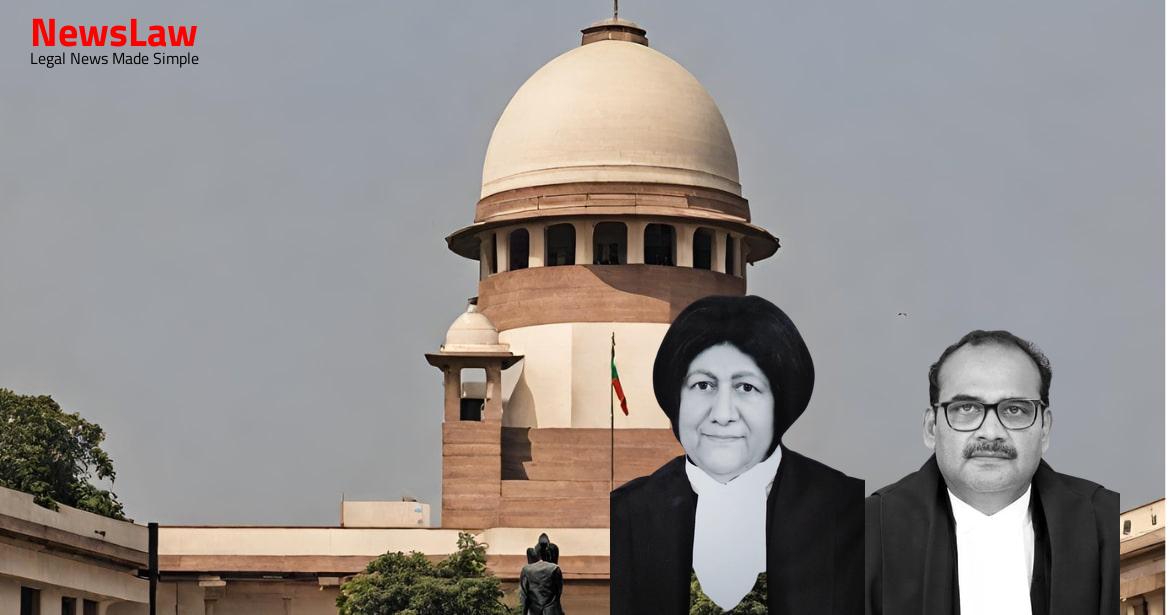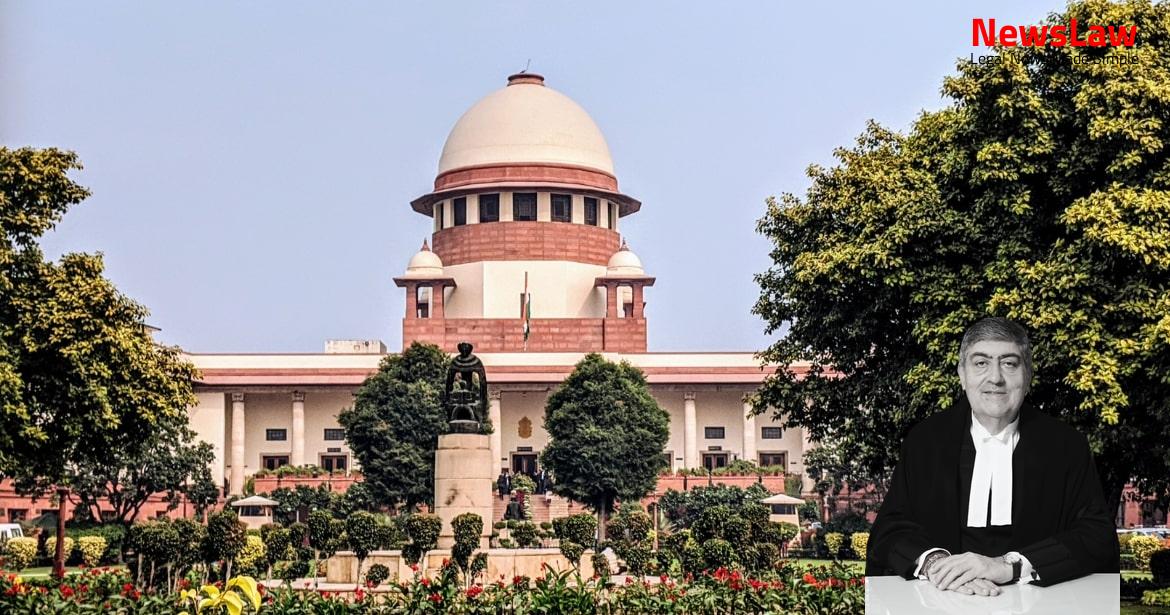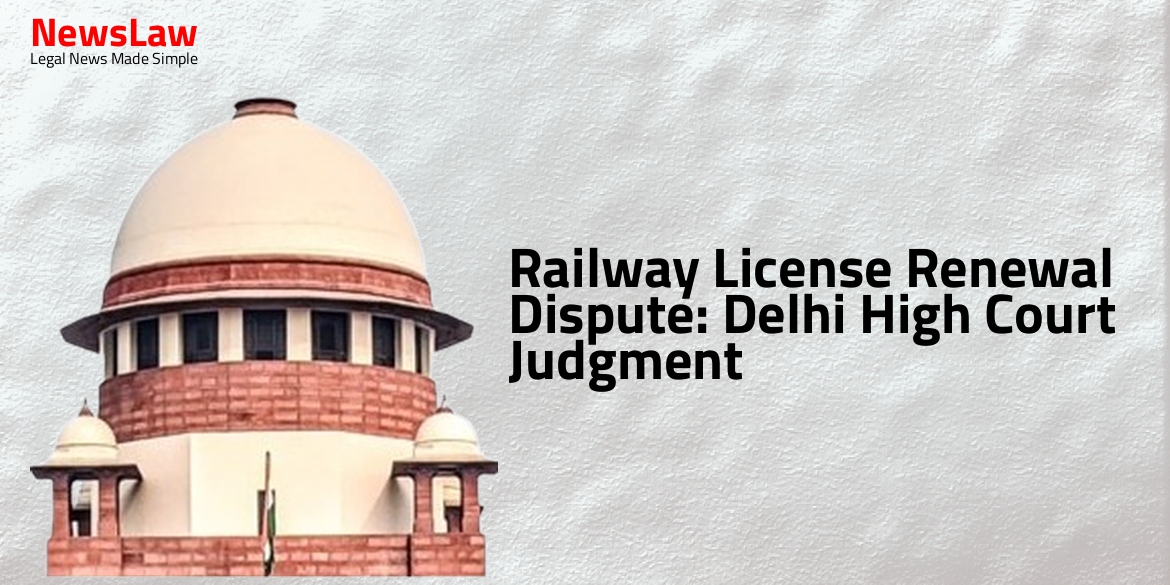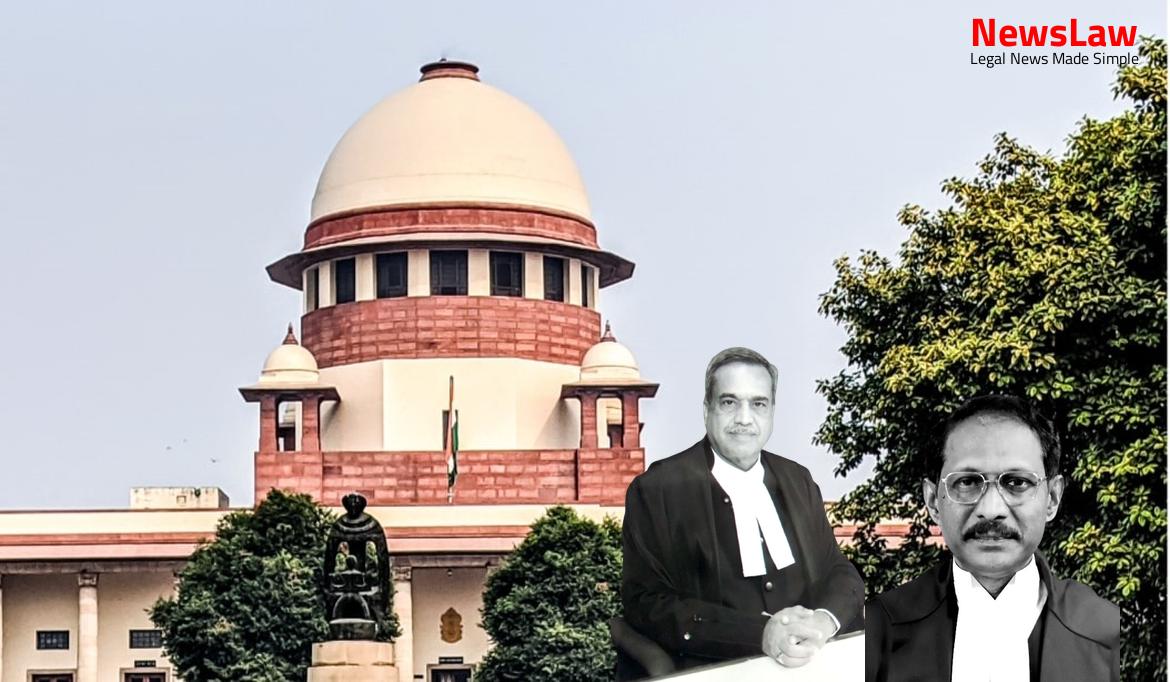The court’s thorough examination of the term ‘entertain’ in Section 9(3) of the Arbitration Act sheds light on crucial aspects of legal proceedings in arbitration cases. The detailed legal analysis presented in this case summary underscores the importance of clarity and precision in interpreting key legal provisions. Stay tuned to explore the nuances of this significant court judgment.
Facts
- Appellant and Respondent entered into a Cargo Handling Agreement at Hazira Port.
- Agreement was amended from time to time.
- Disputes were to be settled through arbitration as per Article 15 of the Agreement.
- Appellant invoked arbitration clause on 22nd November 2020.
- Respondent did not initially respond to arbitration notice.
- Appellant filed application in Gujarat High Court challenging Commercial Court’s order.
- Respondent replied to arbitration notice on 30th December 2020.
- Respondent claimed a total due amount of Rs. 673.84 crores with interest.
- Appellant filed application under Section 9 of the Arbitration Act on 15th January 2021.
- Respondent also filed application under Section 9 on 16th March 2021.
- After the appointed arbitrator resigned, Respondent initiated process for a substitute arbitrator.
- Commercial Court granted Appellant 10 days to challenge its order.
- Both applications under Section 9(1) were heard and reserved for orders on 7th June 2021.
- Appellant’s application under Section 11(6) was disposed on 9th July 2021, appointing a three-member Arbitral Tribunal.
- Appellant filed an interim application on 16th July 2021, seeking reference of applications to the Tribunal.
- Appellant approached High Court for appointment of Arbitral Tribunal under Section 11.
- Commercial Court dismissed Appellant’s application on 16th July 2021.
- Application under Article 227 of the Constitution heard on 2 August, 2021 and reserved for orders on 9 August, 2011.
- Commercial Court adjourned pronouncement of orders in applications for interim relief till 31 August, 2021.
- Section 9 Applications reserved for orders on 7 June, 2021 before Arbitral Tribunal was constituted.
- Justice G.T. Nanavati (Retired) resigned on 25 August, 2021 resulting in no functional Arbitral Tribunal.
- High Court’s order dated 17 August, 2021 dismissing Appellant’s application under Article 227 of the Constitution.
- High Court held that Commercial Court has the power to assess inefficacy of remedy under Section 17 of the Arbitration Act and issue necessary orders under Section 9 of the Act.
- High Court directed Commercial Court to defer pronouncement of orders in Section 9 applications till 9 August, 2021.
Also Read: Land Dispute: Court’s Analysis on Condonation of Delay
Issue
- The short question of law raised in this appeal is whether the Court has the power to entertain an application under Section 9(1) of the Arbitration and Conciliation Act, 1996, once an Arbitral Tribunal has been constituted.
- Another question is about the true meaning and purport of the expression ‘entertain’ in Section 9(3) of the Arbitration Act.
- The following question is whether the Court must assess the effectiveness of the remedy under Section 17 before issuing an order under Section 9(1) of the Arbitration Act, once an Arbitral Tribunal is formed.
Also Read: Legal Analysis on Waiving Waiting Period in Mutual Divorce Cases
Arguments
- Mr. Khambata argued that the Respondent had delayed the nomination of the substitute Arbitrator but is now claiming inefficacy of the remedy under Section 17 of the Arbitration Act.
- The Respondent filed a belated reply after the Section 9 applications had concluded, showing unwillingness to go to arbitration.
- The Commercial Court had erred in interpreting ‘entertain’ narrowly and not considering the whole process up to final adjudication and passing of an order on merits.
- The District Court continued to entertain the Section 9 applications as the final orders were reserved but not pronounced.
- A party invoking Section 9 must be ready and willing to go to arbitration, to avoid flooding the courts with Section 9 petitions.
- The intention of the Respondent to avoid the Arbitral Tribunal and render the remedy under Section 17 inefficacious was evident.
- The insertion of Section 9(3) sought to reduce the role of the Court in granting interim measures once the Arbitral Tribunal was constituted.
- Mr. Khambata contended that Section 9(3) was a measure of Negative Kompetenz-Kompetenz.
- The High Court rightly held that the interpretation of ‘entertain’ in the Arbitration Act was consistent with previous judgments and the legislative intent.
- Mr. Sibal denied that the Respondent delayed the commencement of arbitration.
- Disputes in the notice of arbitration did not correspond to the disputes raised in the Section 9 Application.
- Both parties approached the Commercial Courts with pleadings exceeding 2,200 pages.
- Respondent was in contact with the Appellant to agree on the name of the Arbitrator.
- Court cannot relegate or transfer a pending application under Section 9(1) to the Arbitral Tribunal once constituted.
- Special Leave Petition filed was seen as an abuse of process of Court.
- Appellant sought to refer all disputes to the Arbitral Tribunal for adjudication.
- Section 17 proceeding is not distinct from a proceeding under Section 9 of the Arbitration Act.
- Significant judicial time, cost, and resources spent on agitating the Section 9 Applications.
- Contractual dues of Rs.255 crores for interim period pending to the Respondent since Section 9 Applications.
- Section 9 Applications listed 36 times before Commercial Courts and argued for 11 full days.
- Interpretation of ‘entertain’ as argued by Appellant could open floodgates for protracting litigation.
- Appeal from an order passed by the Arbitral Tribunal in an application under Section 17 lies before the Superior Court.
Also Read: Limitation Period Extension in IBC Case
Analysis
- The expression ‘entertain’ means to consider by application of mind to the issues raised.
- An application for interim relief may be filed in Court under Section 9 of the 1996 Act at different stages of arbitration proceedings.
- The expression ‘entertain’ in the context of legal proceedings means to adjudicate upon or proceed to consider on merits.
- Jurisdiction under Section 9 of the Arbitration Act can be exercised before the Arbitral Tribunal is constituted.
- The Court must determine the efficacy of the remedy available to the Applicant under Section 17 for interim relief.
- Courts should prioritize arbitration proceedings over court hearings as per UNCITRAL Model Law.
- The 2015 Amendment to the Arbitration Act aims to reduce the flood of Section 9 applications in Courts.
- A party cannot claim inefficacy of a remedy if it disables itself from availing that remedy.
- The principle of kompetenz-kompetenz requires the Arbitral Tribunal to exercise jurisdiction over disputes under the arbitration agreement.
- The Court has discretion to direct parties to approach the Arbitral Tribunal for interim protection even if an application under Section 9 was entertained before the Tribunal was constituted.
- The objective is to protect the property under arbitration and ensure arbitration proceedings are not rendered futile.
- Applications for interim relief must be dealt with urgently.
- The Arbitral Tribunal takes precedence over the Courts based on legislative provisions.
- The Court should generally not entertain applications for interim relief once the Tribunal is constituted, unless there are impediments or delays in approaching the Tribunal.
- Challenges to the arbitration agreement do not prevent the Arbitral Tribunal from proceeding with the hearing and ruling on its jurisdiction.
- Once an application is entertained before the Tribunal is constituted, the Court can proceed to adjudicate on the matter.
- Even if an Arbitral Tribunal is constituted, there may be reasons why the Court could be a more efficient alternative for interim relief.
- The legislative intent was not to bar relief under Section 9 even after its final hearing, necessitating a remittance to Section 17.
- Section 9(3) reduces the Court’s role in granting interim measures once the Arbitral Tribunal is constituted.
- The first limb of Section 17 prohibits entertaining an application once an Arbitral Tribunal has been constituted.
- The second limb allows an exception to the prohibition if circumstances exist that may render the remedy under Section 17 inefficacious.
- Section 17 empowers the Arbitral Tribunal to grant interim measures, similar to the powers of the Court under Section 9(1).
- An order passed by the Arbitral Tribunal under Section 17 is deemed to be an order of the Court and is enforceable as such.
- The remedy under Section 17 is considered as efficacious as the remedy under Section 9(1) under the current law.
Case Title: ARCELOR MITTAL NIPPON STEEL INDIA LTD. Vs. ESSAR BULK TERMINAL LTD. (2021 INSC 478)
Case Number: C.A. No.-005700-005700 / 2021



